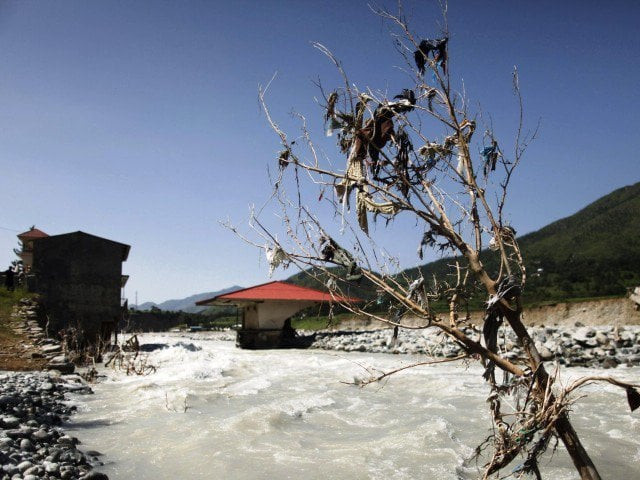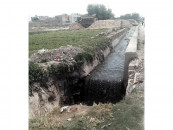Climate change: Youth urged to partake in policy making process
Speakers say younger generation will bear the brunt of environment degradation

Climate change stock image
PHOTO: REUTERS
But, at the moment, they are not taken on board. There is a need to include them at the very beginning of the climate change policy and plan making process.
This was the crux of the deliberations at a seminar on ‘Youth Driven Climate Action’, organised by Sustainable Development Policy Institute (SDPI) on Tuesday.
PML-N MNA Romina Khursheed Alam said: “we should go for the concept of urban forestation in the metropolitan cities and youth can be instrumental in raising awareness in this campaign.”
She emphasised in the need for water pricing and installing water consumption meters at homes and offices to regulate the use of water and to ensure water management.
SDPI Executive Director Dr Abid Qaiyum Suleri said: “we should be hopeful about our future and see the glass as half full.”
Dr Suleri said Prime Minister Imran Khan in his first speech talked addressing malnutrition, illiteracy, climate change, corruption and inequality.
This is a good sign that the prime minister is conscious of the problems facing the nation. “If we want to end inequality and reduce disparities, we have to give preference to sustainable food production, food consumption and sustainable economy.”
Demand driven policy change is important to attain economic and environment sustainability, he added.
An expert on climate change policies Dr Pervaiz Amir said that youth is a significant portion of the society that can bring positive change in near future.
“To cope with dire consequences of climate change, our youth must understand and bring fundamental change in their daily lifestyle.”
He said that the Pakistani nation and especially youth should understand the perils of wastefulness and must change their eating habits.
Dr Amir urged the people to learn the concepts such as sustainable food production and consumption. He said to tackle the future challenges of climatic change, we may need to plant more than a trillion trees throughout the country, and at least need to build five new climate smart and sustainable cities to accommodate the growing youth bulge and population. Mass participation and especially the ownership of youth can materialise the dream of safer, greener and sustainable Pakistan, he added.
Global Change Impact Studies Centre (GCISC) Head Agriculture and Coordination Section Arif Goheer said that it is the young who is bearing the brunt of climate change. He said that climate change impacts will further be extreme in near future. “Our universities and institutions have fragmented research which cannot offer concrete and sustainable solutions to climate change impact. There is a need to provide our youth a unified and undisputed research agenda,” Goheer said.
“In the developed world, youth is empowered and engaged in the policy making, whereas, in our country we make policy without any substantive research and inclusion of the youth,” he added.
SDPI’s Pakistan Youth Climate Network (PYCN) ex-president Yasir Dil Nawaz said that though the younger generation is highly energetic and motivated, but there is a need to build their capacity on technical front around issues on environment and climate change.
He said that PYCN under the umbrella of SDPI initiated several green campaigns and tree plantation drives with the help of its young green volunteers to raise awareness on the issues related to the changing climate.
SDPI China Study Centre Director Shakeel Ramay said that youth is more than half of the population of Pakistan and yet neglected in the policy discourse. He said that the young generation needs to be taken on board as real stakeholders on critical issues of society, economy and environment.
Published in The Express Tribune, August 29th, 2018.



















COMMENTS
Comments are moderated and generally will be posted if they are on-topic and not abusive.
For more information, please see our Comments FAQ